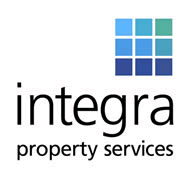
The recent guidelines introduced by National Trading Standards on the provision of material information by agents has brought into sharper focus the requirements under Consumer Protection Regulations that have actually existed since 2008.
With very few prosecutions under the regulations the eye has, for many agents, been off the ball, either deliberately or through naivety. However, the cost of failing to comply is actually running into millions of pounds across the industry every year through ex-gratia compensation payments and redress scheme awards. Neither of these make the headlines and often go “under the radar” as they are not something agents issue press releases or Tik Tok videos on, are they!
Only this week I had an agent express the view that all this “compliance” was a nuisance and a cost. I told them that I felt they were viewing it wrongly and they should see it as a business enabler not a restrainer. They are going to have to “comply” anyway so why not take a positive approach?
Of course, the provision of “upfront information” brings significant opportunities for those with the vision and desire to differentiate and to improve the home buying process for the benefit of their clients and customers and therefore, ultimately, for themselves.
Of course Consumer Protection Regulations apply to lettings as well but let’s just focus on sales for a moment as the opportunities and threats are, in my opinion, more pronounced, meaningful and measurable.
There is plenty of evidence to show that the provision of upfront information speeds up transactions and reduces the levels and costs of abortive work. However, many agents still seem entirely focused on listing at all costs, skimping on any form of qualification or quality control and ignore what actually pays the bills which, ultimately, is completed deals. Of course, gaining listings is a key driver of the business and, being a numbers game, a greater number of listings will, undoubtedly, result in a greater number of sales but a listing that fails to complete is a cost and can cause potential damage to reputation and consumer confidence. Why does volume have to be at the expense of quality?
Working with conveyancers much earlier in the process, aligning everyone’s objectives and delivering a proposition that delivers will, in my opinion, be key. Many conveyancers, will need to adopt new ways of working with elements such as no move, no fee and transparent fixed fees perhaps coming to the fore.
Agents will need to add more value to the agent/conveyancer relationship too in order to better facilitate successful transactions and, where appropriate, to justify a referral fee.
This could be through accessing and using information and sharing it rather than operating in a series of unconnected silos.
This is moving ahead rapidly with things such as the digitisation of the Land Registry, the work of the Digital Property Market steering group, the Home Buying & Selling Group, the Digital Trust Framework and technology providers such as Coadjute using blockchain, distributed ledger network technology to link existing systems across all key parties in a transaction.
Integrated tech stacks where “best in class” providers integrate to provide a seamless “journey” are already here but have much further to go.
As an agent, what is your strategy moving forward? Standing still will, undoubtedly mean going backwards.
Another big topic is around the question of whether a change of Government will finally see ROPA materialise?
Kicked into the long grass by the Conservatives, who will cite having more pressing matters to have deal with as a reason for delay, the Labour party have stated that it is their intention to introduce Lord Best’s recommendations that would mean the need for qualifications, a regulatory body and licensing.
I am not going to go into the pros and cons of ROPA here but there is no doubt that a better “educated” professional workforce would be generally seen as a good thing and, if agents create strategies for maximising the virtues and benefits to consumers of such, could lead to more business and better fees.
Of course there will be resource costs in implementing ROPA – training, regulation and licensing will all carry costs. Many will see this as an unnecessary burden, others will see this as an investment that aids recruitment and retention, improves productivity and ultimately increases profits.
My main point here is – Man doesn’t plan to fail but often fails to plan and therefore when it comes to the future, are you going to be an innovator, an early adopter, a fast follower, an early or late member of the majority, or a laggard?
Michael S Day MBA FRICS FNAEA FARLA
Managing Director Integra Property Services
Article first published in Property Industry Eye – March 2024






